| Wil McMillen |
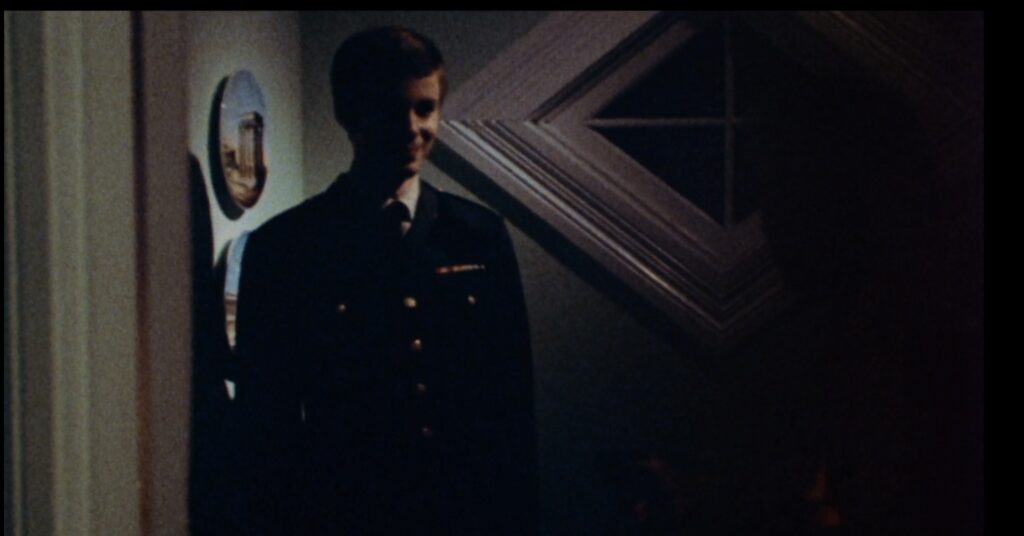
Dead of Night aka. Deathdream plays at the Trylon Cinema Wednesday, September 24th. For tickets, showtimes, and other series information, visit trylon.org.
“My brother came home yesterday
From somewhere far away
He doesn’t look like I remember
As he stares off into space
He must’ve seen some ugly things
He just can’t seem to say”
Sheryl Crow “God Bless This Mess”
Some stories don’t just get retold, they get resurrected. The Monkey’s Paw by WW Jacobs is a tale that, much like the thing knocking at the door in its climax, refuses to stay buried. The genius of the story is how it logically, horrifically, step by step, leads to the conclusion that you can’t outwit fate. The setup is deceptively cozy. A working-class family receives a strange charm, a shriveled monkey’s paw that supposedly grants three wishes. The captain who gives it to them tells them to throw it in the fire. When they resist, he warns them: wishing on the paw will bring them what they want, but in a way they can’t anticipate. They first wish for money, and they get it. Unfortunately, it’s through a payout from their son’s company when he is killed on the job. The second wish is asked in grief: for their son to return from the grave. Soon a knocking begins at the door. The mother races to let him in, but the father, horrified at what he’s done, uses their last wish to wish his son dead again before she can open the door. The story ends in silence and despair as the knocking ceases and the road outside their house is empty once more.
That silence is where the horror lives. Jacobs doesn’t show us what’s behind the door, because nothing he could describe would be worse than what our minds conjure up.
But if The Monkey’s Paw leaves what’s behind the door a horrible mystery, Bob Clark’s retelling of the story, Dead of Night (better known under its alternate title Deathdream) answers the question “How do we live with what’s behind the door?”
The film opens not in a warm English home, but in an unnamed Vietnam. Andy Brooks, a young soldier, hears the screams of a comrade and rushes to help, only to be shot through the chest. At that moment, thousands of miles away, his mother Christine (Lynn Carlin) is at the dinner table praying for Andy’s safe return. “Andy, you promised you wouldn’t die…” she whispers and repeats over the soundtrack, bargaining not with a monkey’s paw but with God Himself.
As dinner ends, a telegram arrives telling the family that Andy has died, and the family breaks down in grief at the news. But later that night, Andy somehow shows up on their doorstep. “Some idiot must have reported wrong”, his father, Charlie (John Marley), rationalizes. But something isn’t right. Andy has changed.
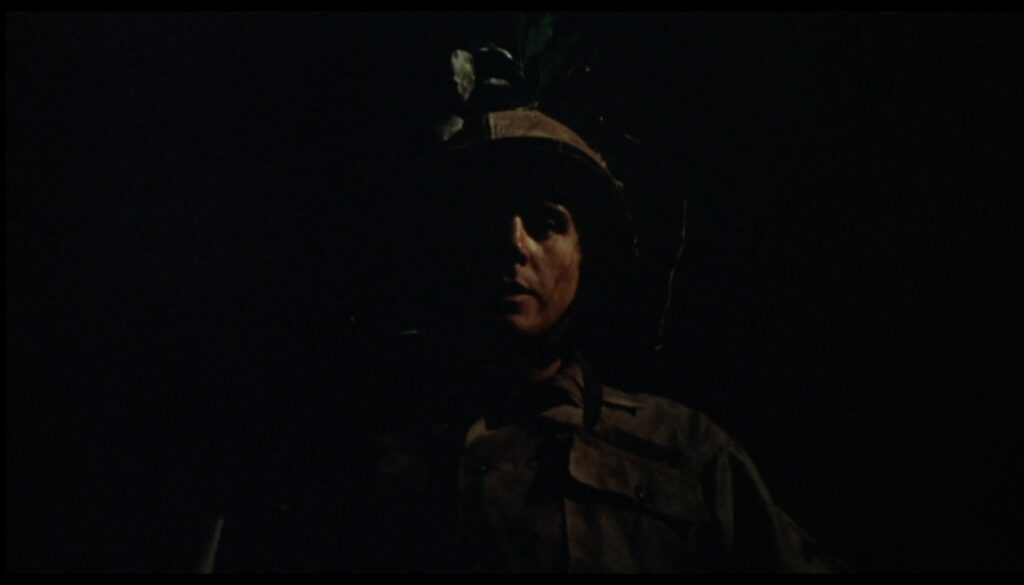
Literally.
Whether it’s a clever casting trick, or a tip to the audience, or if they had already shot the prologue and didn’t have the money to reshoot, the opening scene in Vietnam has a completely different actor, Gary Swanson, playing Andy. When he arrives at the family house, Andy is now played by Richard Backus. He looks similar enough to pass, but not so much you’re convinced. He’s literally a different man. And his family, desperate to have Andy home, refuses to acknowledge it.
Sitting down at the dinner table to reconnect, Charlie admits to Andy that they were told he was dead. Andy calmly and simply, “I was.” Then he begins to laugh. His grin stretches until he resembles a skull. The family nervously laughs along, their joy teetering on hysteria. It’s one of the most unnerving moments in the film. Their laughter lasts just a little too long. It’s a reunion scene turned manic, happiness rotting into menace right before our eyes.
From there, things begin to unravel quickly. Charlie bristles at Andy’s strangeness. He’s already shown disdain for Christine’s prayers at the dinner table, rolling his eyes as she clings to hope. To him, Andy is and always has been a “mama’s boy,” and the film beautifully, subtly makes their connection clear. The night they receive word that Andy has died, Christine spends the night in his childhood rocking chair, candle in hand, as if waiting for him to return. Later, Andy spends his days in that same chair, rocking endlessly, staring blankly out the window. The creaking becomes the sound of denial, driving Charlie mad.
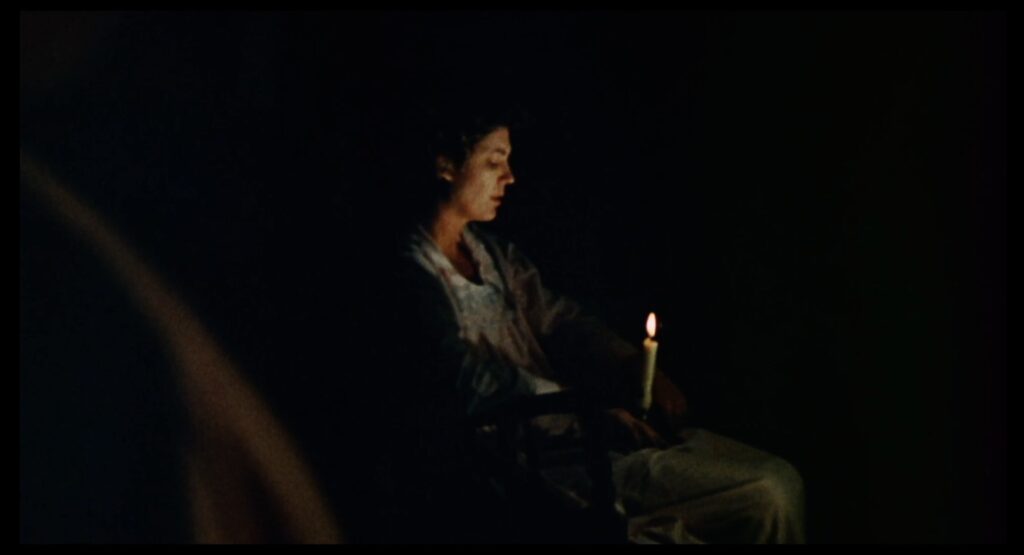
But where Charlie wants answers, Christine wants comfort. When Charlie asks, “Why’s he so different? Why won’t he let us tell people he’s back?” Christine counters, “It’s only been two days. Give him some time.” She refuses to see the changes in Andy, subtle as they are at this point.
Charlie doesn’t want to wait. Charlie presses Andy into encounters with others, trying to normalize Andy in his own way. First is a chatty mailman who recounts grisly war stories with a smile on his face and a sandwich in his mouth. Later, Charlie surrounds a clearly annoyed Andy with a group of kids from the neighborhood, the kids loudly asking Andy why he’s not in uniform and how many people he killed. With each encounter, Andy grows angrier and darker. With the mailman he quickly storms away. With the kids, he crushes one boy’s arm until he cries and then, in an escalation that’s still shocking, strangles the family dog in front of them.
And through all of this, Christine still refuses to admit that there is something seriously wrong with Andy.
Looking through a modern lens, Andy has PTSD. He’s a soldier returning home a shattered form of his former self, not understood by his family, and simmering with rage. But in 1974, PTSD wasn’t widely talked about, and didn’t yet have a clinical name. Soldiers came back from Vietnam changed and society didn’t have the language, the systems, or the willingness to understand. Like society, Christine treats Andy’s behavior as something to be ignored. “Give him time,” she pleads. Charlie, on the other hand, in his attempt to understand what’s going on, insists on control, dragging in a doctor to examine Andy over Christine’s angry objections. However, instead of checking Andy’s pulse (which wouldn’t be there) or taking his temperature (which would be “room”), the Doctor seems more interested in connecting Andy with a murdered truck driver. While Andy is definitely guilty of the crime, the doctor is ignoring all of the symptoms of his illness. It’s denial manifested in a willfully undiagnosed malignancy. The metaphor sharpens. America didn’t want to admit it was losing in Vietnam. Families didn’t want to admit their sons came back broken. Denial became survival.
Though the parallels between Andy and his mother are numerous, Andy has one important thing in common with his veteran father. While Charlie says that he came back from WWII “just fine,” his constant drinking tells a different story. Once Andy kills the dog, Charlie sinks into the bottle completely. He has been numbing his pain for years, and Andy’s return and behavior only drive him deeper.
Andy has his own addiction: blood. He needs it to literally hold himself together. After murdering the doctor, Andy, in a scene that can only be viewed as a junkie shooting up, injects the doctor’s blood into his veins, eyes rolling in orgasmic ecstasy. He’s got his fix, and, returning home, his appearance has returned to “normal.” Like his father, Andy is self-medicating. It’s just for Andy (and his victims) the stakes are much higher.
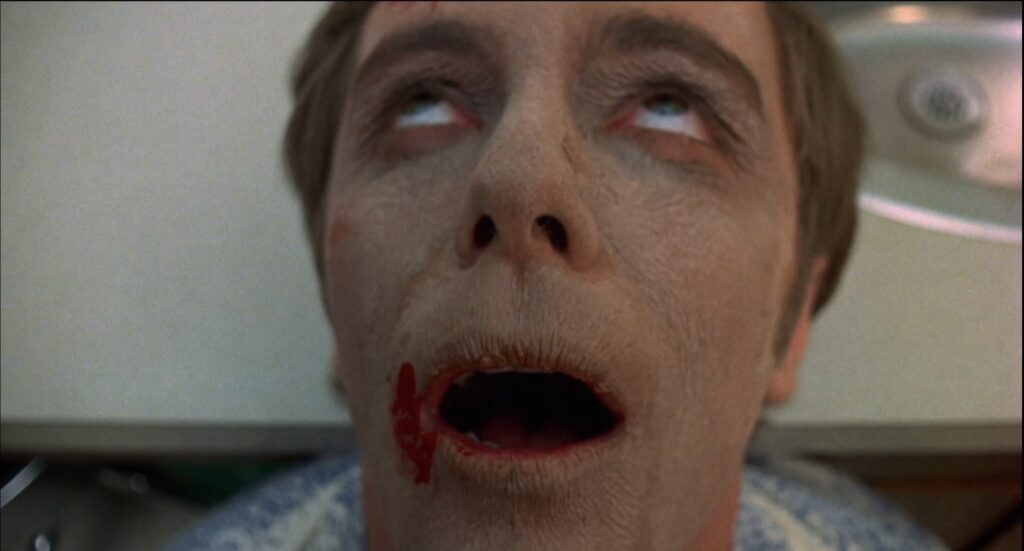
Throughout the film, Christine has been a quiet but persistent presence, urging Charlie to go easy on Andy and refusing to acknowledge just how much her son has changed. But as she sits watching television, she sees her world exposed. A news report announces that a local doctor has been killed, apparently by the same person who murdered a truck driver earlier in the week. Christine breaks. The illusion of her perfect home is gone, rotted from within. In a gesture that echoes the paranoia and cover-ups of Watergate, she pivots immediately to concealment. With a blank expression and a dead-eyed stare, she tells Charlie they’ll have to leave town with Andy to hide him. She’s even willing to abandon her daughter to face the fallout alone, so long as she can continue to keep up the façade that everything is fine with Andy.
In this moment, we realize it’s been Christine’s insistence that “Andy is fine” that’s allowed the carnage Andy’s wreaked. Christine’s son has come home with a different appearance, he’s easily angered, he kills the family dog, he literally begins to fall apart in front of her eyes, and she continues to insist that there’s nothing wrong with Andy. He’s still her perfect baby. Her love excuses everything. Her desperation for the perfect American family blinds her to the monster in the living room.
Christine isn’t just a mother in denial. Christine is America. Christine is an American populace that was unable to admit defeat in Vietnam. She’s the country clinging to the myth of its innocence, insisting it’s the “good guy,” longing for the imagined Norman Rockwell past that never actually existed. She embodies the refusal to admit failure, the refusal to acknowledge the costs of war, the willful ignorance of a painful past that disrupts the illusion of a blameless history.
If that sounds familiar, it’s because Dead Of Night hasn’t aged a day.
We’re living in a moment when Christine’s spirit is alive and well. Museums are being scrubbed of uncomfortable truths. Textbooks are being rewritten to soften or erase the causes of the Civil War. The Department of Education and PBS, both institutions dedicated to education, knowledge, and culture, are under threat. Once again, denial is packaged as patriotism. Once again, some Americans would rather bury the evidence than face it.
That’s why Clark’s film remains so unsettling and uncomfortable today. It isn’t just a Vietnam allegory. Vietnam is never named. No, it’s a warning about what happens when denial becomes policy, when grief curdles into delusion. We may be through with the past, but the past ain’t through with us.
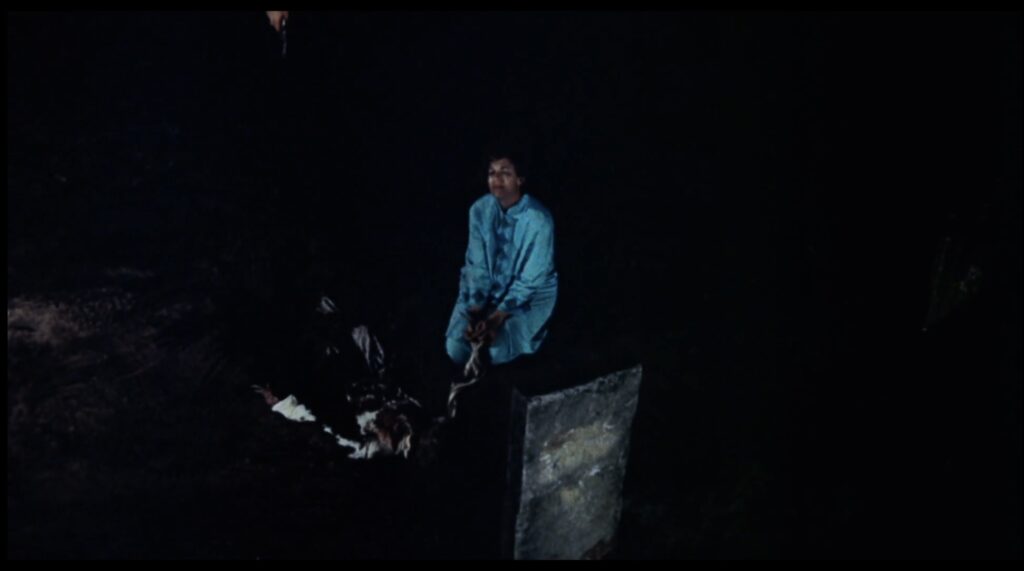
The film’s final minutes are devastating. Andy, his body literally falling apart, crawls into his grave. Christine, weeping, helps him bury himself. She shovels dirt over her son with tenderness, as if tucking him into bed. And then comes her final line, cut from many prints for being too bleak: “Andy’s home. Some boys never come home.”
It’s chilling because it’s delusional. Christine sees herself as lucky, blessed even, to have her son “home.” But what she has is a corpse. A monster. A nightmare. She mistakes ruin for salvation. That’s the film’s last, bitter joke. In trying to preserve the illusion of perfection, Christine destroys everything.
God bless this mess indeed.
Edited by Finn Odum
